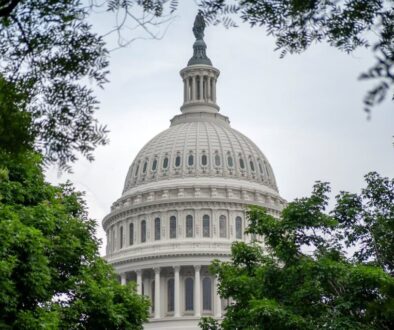Blockchain technology and cryptocurrencies have transformed the way the world thinks about money, trust, and transactions. From being an underground digital experiment, blockchain is now reshaping governments, businesses, and economies globally. But which countries are actually embracing blockchain and crypto in meaningful ways? Let’s dive into the real-world landscape of countries actively using blockchain and cryptocurrency, their progress, and what lies ahead! 🚀
What Is Blockchain and Cryptocurrency? 🔍
Before we dig into countries, a quick refresher:
- Blockchain is a decentralized digital ledger that records transactions securely and transparently.
- Cryptocurrency is digital money built on blockchain tech — Bitcoin (BTC), Ethereum (ETH), and others are prime examples.
Together, they promise faster payments, transparency, financial inclusion, and new business models.
1. El Salvador: The Bitcoin Pioneer 🇸🇻
El Salvador became the first country in the world to adopt Bitcoin as legal tender in September 2021, a historic milestone. Spearheaded by President Nayib Bukele, the government launched the Chivo Wallet, a state-backed Bitcoin wallet to help citizens transact with crypto for everyday use — paying taxes, buying goods, and remitting money from abroad.
Founder Spotlight: Nayib Bukele
A former mayor turned president, Bukele is known for his bold, tech-savvy policies. His Bitcoin bet has put El Salvador on the map but also attracted global attention and controversy.
Facts & Utilization:
- Over 70% of Salvadorans reportedly have used Bitcoin via Chivo Wallet.
- Bitcoin ATMs and crypto-friendly businesses are rapidly increasing.
Pros ✅
- Promotes financial inclusion in a country where 70% are unbanked.
- Opens remittance market ($6 billion/year) to cheaper transfers.
Cons ❌
- Bitcoin’s price volatility poses economic risks.
- International bodies like IMF have warned against it.
Future Roadmap 🛤️
El Salvador plans to build a “Bitcoin City” powered by geothermal energy from volcanoes, aiming to be a global crypto hub.
2. Switzerland: The Crypto Valley of Innovation 🇨🇭
Switzerland’s Zug region, nicknamed Crypto Valley, is a magnet for blockchain startups, thanks to a clear regulatory environment and crypto-friendly banking.
Founder Insight:
The Swiss model isn’t driven by one person but a collective ecosystem including government, startups, and academia working hand-in-hand.
Facts & Utilization:
- Home to projects like Ethereum Foundation and many ICO launches.
- The Swiss government actively explores blockchain for public services and finance.
Pros ✅
- Transparent legal framework for ICOs and crypto businesses.
- High trust and security reputation.
Cons ❌
- High operational costs in Switzerland can be a barrier for startups.
3. Singapore: Asia’s Fintech Powerhouse 🇸🇬
Singapore is a top destination for blockchain companies, with the Monetary Authority of Singapore (MAS) fostering a regulated yet innovative environment.
Facts & Utilization:
- MAS runs a regulatory sandbox allowing startups to test new crypto services safely.
- Blockchain is used in trade finance, supply chain, and payment systems.
Pros ✅
- Clear rules reduce investor uncertainty.
- Robust infrastructure and global connectivity.
Cons ❌
- Regulatory prudence can slow some innovations.
4. United Arab Emirates (UAE): Government-Backed Blockchain Vision 🇦🇪
Dubai and Abu Dhabi are aggressively integrating blockchain to streamline government services — from land registries to health records — aiming to be global tech hubs.
Facts & Utilization:
- The Dubai Blockchain Strategy targets 50% of government transactions to be on blockchain by 2025.
- Dubai Multi Commodities Centre (DMCC) launched a crypto valley with tax incentives.
Pros ✅
- Strong government commitment and funding.
- Growing ecosystem attracting international crypto firms.
Cons ❌
- Regulations still evolving and somewhat unclear.
5. Estonia: Digital Pioneer and Blockchain Innovator 🇪🇪
Estonia’s e-residency program and digital governance heavily leverage blockchain to ensure security and transparency.
Facts & Utilization:
- Blockchain secures voting, health records, and identity verification.
- Recognized globally as a model for digital transformation.
Pros ✅
- Efficient, transparent public services.
- Enhances trust in government systems.
Cons ❌
- Small country with limited economic scale.
Bonus: Other Key Players
- Japan: Early crypto regulations, home to major exchanges, regulated by the Financial Services Agency.
- South Korea: Strong retail crypto market and government support for blockchain startups.
- Malta: Known as “Blockchain Island” with friendly regulations and tax benefits.
- Brazil: Growing crypto adoption with emerging regulations.
- United States: Leader in innovation with a massive crypto economy but fragmented regulation.
Why Are Countries Adopting Blockchain & Crypto? 🤔
- Financial inclusion: Reaching unbanked populations with digital wallets.
- Reducing transaction costs: Cross-border payments become cheaper and faster.
- Transparency & anti-corruption: Immutable ledgers prevent fraud.
- Attracting innovation: Countries want to be tech hubs for startups and investment.
Pros and Cons of Government Crypto Adoption
| Pros ✅ | Cons ❌ |
|---|---|
| Financial inclusion | Volatility risks |
| Economic modernization | Regulatory uncertainty |
| Increased transparency | Possible money laundering |
| Job creation & innovation | International regulatory pushback |
The Roadmap Ahead: Blockchain Governments of the Future 🚀
- 2025: Many countries aim for blockchain-powered public services (voting, health, land registry).
- 2030: Potential for central bank digital currencies (CBDCs) to replace or complement fiat money globally.
- Beyond: Integration of AI and blockchain to automate government and economic functions securely.
Final Thoughts: A Crypto-Enabled World? 🌐
Blockchain and cryptocurrency are no longer just tech buzzwords — they’re reshaping economies and governments worldwide. Countries like El Salvador challenge traditional finance, while Switzerland and Singapore build innovation hubs. The future promises more transparency, inclusion, and efficiency — but not without risks. Understanding this global movement is key to navigating the digital economy.




































